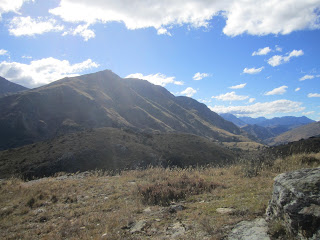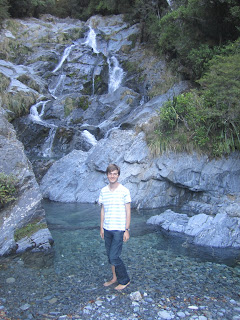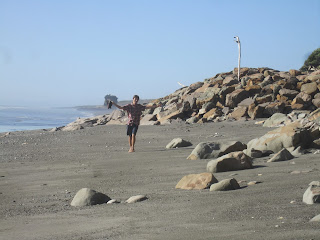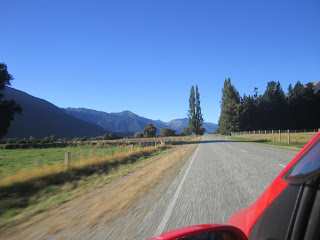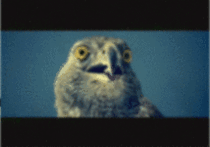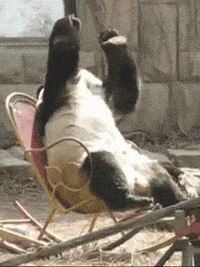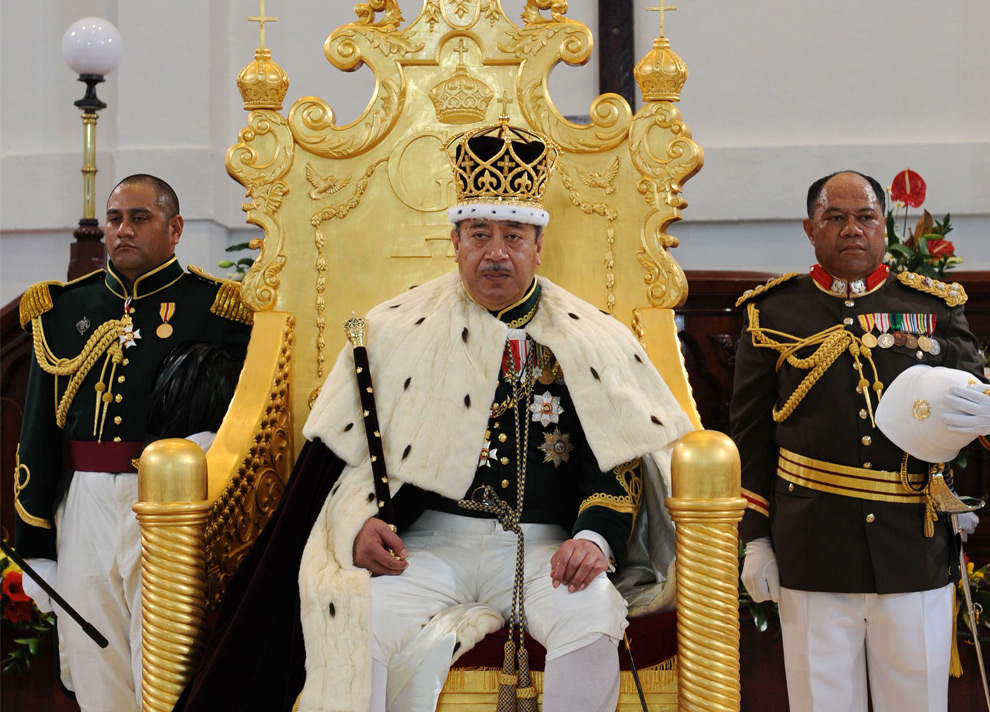(Alternative Title) Interesting Stuff to Keep in Mind*
I'm back! And I'm here to make you think about stuff!
Over the course of the term in my Anthropology class ('Colonialism and Its Legacies'), I learned a bucketload of ideas that are really useful in understanding the postcolonial world, i.e. pretty much any society and culture today. Being a reasonably privileged person, I initially had some trouble putting the pieces together, but gradually I got the hang of what was going on. I think the best outcome of the class isn't the variety of perspectives I gained but rather the tough questions I'm still left to scratch my head about.
To pat myself on the back for all my hard work (thinking is hard for me) and to give a taste of the class to anyone interested, I've compiled what I consider to be a theoretical toolbox. Using some of the ideas below, anyone (even people who don't think they're anthropologists!) can break down stereotypes and common misconceptions in order to approach the world in new ways. I can guarantee you (or your money back!) that you already understand most anthropological theory; it's just that you might not have applied it before. If nothing else, the concepts raise a lot of tricky questions that are useful to think about.
The list below is certainly non-comprehensive, since it's a bit eclectic. In fact, some might argue that they're a bunch of buzzwords. If you put all that aside, I think that they can be a springboard for critical thinking among anyone who hasn't heard of the concepts before.
Enough of the explanations. Let's get to the goodies!
Last note: they're categorized not as they were in class but rather as I seem them grouped now. And they're not definitions so much as cool stuff to think about.
Postcolonial History and Politics
neo-Europes - term coined by Alfred Crosby to describe nations populated mainly (i.e. dominated) by Europeans, who colonized lands occupied by their native people in search of temperate climates and natural resources (for a more expansive, arguably 'scientific' approach to the circumstances allowing the creation of neo-Europes, see Jared Diamond's modern classic)
Third World - label applied to countries aligned neither with NATO nor with the Communist bloc during the Cold War, with the extreme poverty stereotype applied later due to most of the countries having only been recently decolonized (i.e. arguably over-exploited rather than 'under-developed')
tricontinentalism - a political movement born in response to postcolonial oppression in the 1960s, among peoples of Africa, Asia, and South America; associated with communist and socialist ideals as a means of resistance to capitalist imperialism (e.g. these guys here)
Third World - label applied to countries aligned neither with NATO nor with the Communist bloc during the Cold War, with the extreme poverty stereotype applied later due to most of the countries having only been recently decolonized (i.e. arguably over-exploited rather than 'under-developed')
tricontinentalism - a political movement born in response to postcolonial oppression in the 1960s, among peoples of Africa, Asia, and South America; associated with communist and socialist ideals as a means of resistance to capitalist imperialism (e.g. these guys here)
development - kickstarted during the reconstruction era following the end of World War II (and inspired by the Marshall Plan's success in Europe), the process of attempting to improve quality of life in Third World countries, usually through top-down international policies; though embraced by the UN, this ideology has frequently faced criticism
modernity - one of the end goals of development, the standard of living counted as acceptable or even ideal by Western nations (including Western traditions of thought); tied but not inherently linked to industrialization
globalization - the process of cultural and economic presence spreading from a dominant culture/nation to interact with other cultures (e.g. TOURISM...to be discussed later)
globalization - the process of cultural and economic presence spreading from a dominant culture/nation to interact with other cultures (e.g. TOURISM...to be discussed later)
postmodernism - the skeptical response to aspects of modernity/'modernism', including critical reevaluations of the commonly-accepted views of culture, economics, and philosophy; often involves lots and lots of deconstruction
(usually a bit dry to read about, but sometimes weird and fun to apply) (also duck)
(usually a bit dry to read about, but sometimes weird and fun to apply) (also duck)
 |
| One of the first images to appear in a Google search for 'postmodern.' |
Memory and Tradition
memory - private or shared, an act of recollection that can manifest in a number of ways including the following (which aren't mutually exclusive):- textual - contained within a written work, e.g. a memoir; permanent but sometimes lacking in expressiveness or impersonal
- embodied - experienced through the body, usually via one of the five senses; less predictable than other kinds of memory but often much more visceral
- locative - tied to a specific place or setting, particularly if one has lived there or otherwise 'absorbed' the location without necessarily engaging it actively; not accessible everywhere but often the kind of memory linked to nostalgia
- performative - evoked by organized, perhaps ritualized action, including social bonds; shared between people and accessible even to non-participants
- counter-memory - recollections that run counter to typical narratives and often aren't immediately accepted into mainstream discourse/educational practices
- I remember reading somewhere about how it can be restrictive to think of 'memory' as a fixed noun rather than as a verb, but that's getting into some Whorfian-level sh*t.
forgetting - the loss of memory over time, whether tacit or accidental; can be either beneficial or harmful depending on context, the people who forget, and the people who remember
- Anthropologist Paul Connerton outlines seven types of forgetting in The Spirit of Mourning as follows (again: not mutually exclusive)
- prescriptive (publicly acknowledged, in everyone's interest)
- used to create a new identity (e.g. after a tragedy)
- annulment (induced by an information overload that 'allows' people to let go of certain things)
- repressive erasure (enacted via force, despite disagreement)
- structural (only remembering things directly connected to oneself or directly passed down, and forgetting all the extra stuff)
- planned obsolescence (the rapid rebranding and redesigning of consumer goods in capitalist society, intended to keep consumers buying stuff)
- humiliation (a collective failure to acknowledge painful realities)
(obligatory "Fiddler on the Roof" reference)
 |
| Sometimes change is good. |
Representations and Commodification
authenticity - the extent to which a culture or people is truly (not falsely) unique in the eyes of observers; doesn't always correspond to the people's self-perceptions
essentialism - any act that simplifies the complexities of a culture to fixed (sometimes 'undesirable') traits that are 'essential' to that culture (and strategic essentialism)
- strategic essentialism - a group strategy of putting aside internal differences within the group to present a unified identity to outside observers sometimes it works, sometimes it doesn't
- Orientalism - the long Western tradition of exotifying various non-European peoples and their cultures
- auto-Orientalism - the equally (?) long non-Western tradition of people deciding for themselves how they wanted to appear 'exotic' and using that label to their advantage
disembedding - the act of cognitively removing an event, tradition, physical object, concept (etc.) from its original cultural context with the intention of reanalysis under a different mental framework; the removed thing can also be more firmly re-embedded in another context
- commodification - transforming a formerly non-capital cultural object or practice into a commodity that can be used or exchanged even among those unfamiliar with the culture
- cultural capitalism - the practice of buying and selling goods in a way that allows the producer and consumer to engage with the apparent ethics of capitalist practices; if you click on no other link, click here to watch a charming video on cultural capitalism
- tourism - often involves cultural performances of one kind or another, implying a kind of commodification on behalf of the tourists
the Other - a dominant group's perception of a non-dominant group as something to be alienated rather than treated as equals
- second contact - a reaction of the 'Other' toward the group that originally did the Othering...thus resulting in an alienation of the dominant group
 |
| Second contact? Or self-deprecation? |
Nature and Land
virtualism - people imposing their view of the world (sometimes idealized) onto reality itself
sedimentation - the physical and cultural layering imposed onto a space by multiple groups of people who use the space in succession...or sometimes all at once
possession of land - basically it means different things to different people, depending on how it is used and incorporated into local culture
Fourth World - a label applied to groups without fixed or recognized borders, partially due to modern ideas of sovereignty being tied to land
Fourth World - a label applied to groups without fixed or recognized borders, partially due to modern ideas of sovereignty being tied to land
indigenous - the self-determined status of a people seeking to regain authority and ownership of what was systematically deprived of them through colonialism; often refers to people inhabiting a location immediately prior to its colonization by outsiders
self-determination - the capability of an individual or group to define their own identity, even if it conflicts with others' perceptions (and belonging)
contact zone - the social space (geographical or conceptual) of overlap between different cultures, often disputed by all parties involved, sometimes in an asymmetrical power balance; frequently results in polarization or...
- hybridization - probably the coolest thing ever: the collision and subsequent mixing of multiple cultures, often catalyzed by youth
- liminality - occupying a space between cultures, despite pressures to choose one side or the other (let me know if you want to talk about liminality and Māori gangs - it was the topic of my final paper)
reflexivity - the ability to reflect consciously on one's position and life experiences, and how these shape one's perspective of the world
auto-ethnography - any anthropological study conducted on a group of people by a member of that group, which connects the writer's personal experiences to those of the larger community/culture; this seems to be where a lot of anthropology is headed right now, in opposition to the "pith-helmet anthropologist"-type ethnographic work
 |
| Good riddance, old-school explorers! |
After all is said and done, keep in mind that these concepts tie into one another and butt heads with one another all the time, and they are hardly fixed over time. One man's virtualism is another man's commodification! If I had more patience and time, I would provide a much fuller list for your indoctrination enjoyment, but if you want to know more there's always Wikipedia (or my course's syllabus if you really want)!
To tie all these anthropological concepts together, I invite my marvelously patient readers to watch this talk by Chimamanda Adichie about stories, memory, and cultural (mis)representation. It's really cool.
With that essay, my awkward adventures in Aotearoa come to a close. I know I'll be back someday, but for the time being I return to my American mindset with all its limitations and biases. If there's anything I'll take away, it'll be to keep looking at the world through a skeptical lens. That's not to say that everything is problematic, just that some things deserved to be scrutinized a bit more than you might think.
Finally, all this knowledge is courtesy of my professor, Jim Igoe. He's on sabbatical for the next year but if you ever want to take an Anthro class in the future, take a class with him! He knows a lot about African NGOs, and more importantly he knows how to make theory interesting.
*My 10th-grade English teacher might have titled it 'Habits of Mind,' which were these frustratingly unanswerable questions we would have to tackle after reading any play/book/poem. Thanks, Mrs. Benedetto.
To tie all these anthropological concepts together, I invite my marvelously patient readers to watch this talk by Chimamanda Adichie about stories, memory, and cultural (mis)representation. It's really cool.
With that essay, my awkward adventures in Aotearoa come to a close. I know I'll be back someday, but for the time being I return to my American mindset with all its limitations and biases. If there's anything I'll take away, it'll be to keep looking at the world through a skeptical lens. That's not to say that everything is problematic, just that some things deserved to be scrutinized a bit more than you might think.
Finally, all this knowledge is courtesy of my professor, Jim Igoe. He's on sabbatical for the next year but if you ever want to take an Anthro class in the future, take a class with him! He knows a lot about African NGOs, and more importantly he knows how to make theory interesting.
*My 10th-grade English teacher might have titled it 'Habits of Mind,' which were these frustratingly unanswerable questions we would have to tackle after reading any play/book/poem. Thanks, Mrs. Benedetto.









